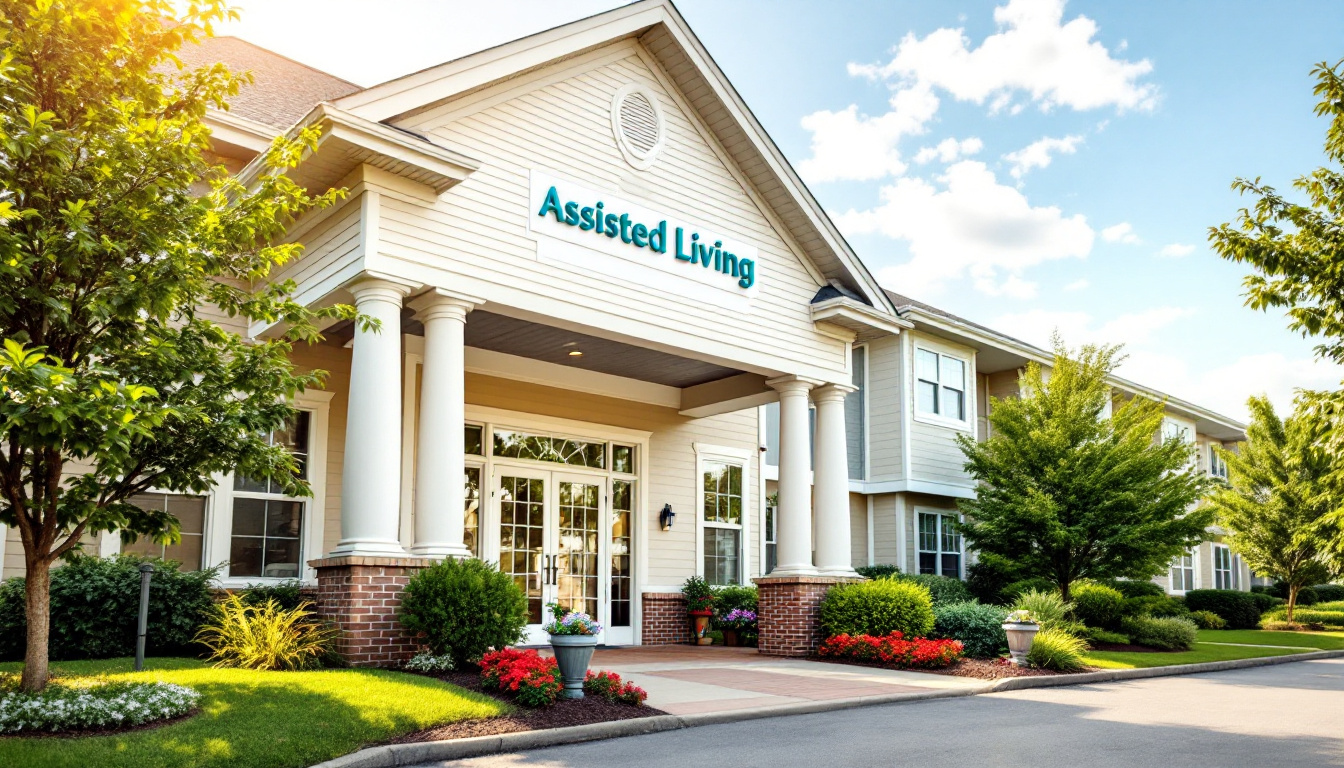How to Address Ethical Concerns in Senior Care Placement Decisions
Ensuring Integrity and Compassion in Senior Care Placement

The Foundations of Ethical Senior Care Decisions
Making ethical decisions in senior care placement is a complex task that requires a deep understanding of core principles, legal standards, and the multifaceted needs of older adults. As industries evolve and societal expectations expand, caregivers, clinicians, families, and policymakers must collaboratively uphold ethical standards that respect the dignity, autonomy, and safety of seniors. This article explores the essential frameworks, practices, and ongoing strategies to navigate ethical dilemmas ethically and responsibly, ensuring placements not only meet legal standards but also honor personal values and promote well-being.
Key Ethical Principles in Elder Care Decisions

What are the key ethical principles involved in elder care decision-making?
Elder care involves complex ethical considerations that focus on respecting the person’s dignity, rights, and well-being. Several core principles guide healthcare providers and caregivers to make morally sound decisions in this sensitive field.
One foundational concept is beneficence, which requires acting in the best interest of the elder by promoting their health and happiness. alongside this is non-maleficence— the obligation to avoid causing harm. Together, these principles help ensure that interventions prioritize the elder's safety and overall well-being.
Respect for autonomy is central to ethical elder care. It emphasizes honoring a person’s right to make decisions about their own body and life, including the use of advanced directives like living wills and durable powers of attorney. Facilitating informed consent means providing elders with all necessary information and respecting their choices, even in cases of cognitive decline.
Confidentiality and privacy are critical, especially in today's digital age where personal health information can be vulnerable. Protecting elder privacy fosters trust and maintains their dignity.
Justice involves fairness in distributing healthcare resources and ensuring elders are treated equitably regardless of socioeconomic status, cultural background, or health conditions. This principle pushes for equal access to quality care.
Finally, holistic and dignified end-of-life care aligns with values of respect, compassion, and cultural sensitivity. Respecting individual preferences and spiritual needs during this phase ensures elders are cared for with dignity and respect.
Understanding and applying these principles allows caregivers, clinicians, and family members to navigate ethical dilemmas effectively, prioritizing the elder’s rights and welfare.
| Ethical Principle | Focus | Practical Application | Additional Notes |
|---|---|---|---|
| Beneficence | Promote well-being | Implementing therapies that improve quality of life | Focus on positive outcomes |
| Non-maleficence | Avoid harm | Carefully assessing risks before treatments | Preventing injury or suffering |
| Autonomy | Respect decision-making rights | Supporting elders in making informed choices | Includes respecting refusal of treatment |
| Confidentiality | Privacy of personal health information | Securing medical records and limiting disclosures | Vital for trust and dignity |
| Justice | Fair access and treatment | Equitable resource allocation | Non-discrimination in care provision |
| Dignity & Respect | Honor individual identity and values | Tailoring care to cultural and personal preferences | Promotes holistic, person-centered care |
Let us search for further insights: "ethical principles elder care decision-making".
The Role of Professional Guidelines and Standards in Ethical Placement

What role do professional guidelines and standards play in ethical elder care placement?
Professional guidelines and standards are essential in shaping ethical elder care placement. They set clear principles and best practices that healthcare and social service providers must follow, ensuring decisions prioritize the dignity, rights, and well-being of elder clients.
These standards emphasize core ethical values such as respect, confidentiality, and informed consent. They help practitioners make morally responsible decisions, balancing client autonomy with safety considerations.
Accountability and transparency are also central. Guidelines encourage honest communication with clients and families about care options, costs, and services. This openness fosters trust and helps avoid conflicts of interest or unethical practices.
Standards for facility evaluation and staff training are vital components. Regular assessments of care environments, along with system-wide training—including certifications for specialized care like dementia—ensure high-quality service delivery.
Handling conflicts of interest and maintaining legal compliance are explicitly addressed within these guidelines. They provide frameworks for resolving disputes ethically and avoiding practices that could harm client welfare.
Ongoing ethics education is another cornerstone. Continuous learning opportunities, such as ethics rounds and professional development programs, help care providers stay current with evolving standards and ethical issues.
In the end, these guidelines promote a culture of continuous improvement, integrity, and respect within elder care. They serve as the foundation for ensuring that placement decisions are ethically sound, transparent, and centered on the needs and rights of the elderly.
| Aspect | Description | Additional Notes |
|---|---|---|
| Respect, confidentiality, informed consent | Ensures client rights are prioritized and protected | Fundamental ethical principles |
| Accountability & transparency | Promotes truthful communication and responsible practices | Builds trust with clients and families |
| Facility & staff standards | Regular evaluation and specialized training | Maintains quality and safety |
| Conflict resolution & legal compliance | Addresses conflicts ethically and adheres to laws | Safeguards client welfare |
| Ethics education & improvement | Continuous professional development | Keeps standards up-to-date |
These comprehensive standards anchor ethical elder care placement, providing clarity and integrity throughout the process.
Legal Standards and Residents' Rights in Senior Care Placement

What are the legal standards and residents' rights related to senior care placement?
Residents in senior care facilities are protected by various federal and state laws that set clear expectations for quality care, dignity, and safety. One prominent federal law is the Nursing Home Reform Law, which mandates that residents receive respectful and person-centered care.
Residents have rights that safeguard their autonomy and privacy. These include the right to be fully informed about their care plans, treatment options, and billing details. They can participate actively in decisions about their care, including choosing their facility and defining personal routines.
Protection against abuse, neglect, and unwarranted discharge is a critical legal aspect. Facilities are required to follow procedures that ensure residents are not unlawfully transferred or discharged without proper notice or alternative placements. This protects residents from abrupt relocations that could threaten their well-being.
Residents also have the right to privacy and the ability to keep personal possessions, communicate freely with family and friends, and participate in social and religious activities. These rights are fundamental to maintaining their dignity and independence.
Legal mechanisms are in place for residents and their families to raise concerns. Filing complaints with state agencies or seeking legal remedies helps enforce residents' rights. Oversight bodies regularly review facilities to uphold legal standards, ensuring accountability.
Facility obligations include creating safe environments free from discrimination, ensuring that care meets individual needs, and respecting personal choices. Adherence to these standards not only safeguards residents' rights but also promotes trust and quality in senior care services.
| Regulation | Description | Responsibility |
|---|---|---|
| Nursing Home Reform Law | Sets federal standards for dignity, safety, and autonomy | Facilities must comply with minimum care standards |
| State statutes | Provide additional protections specific to each state | State agencies oversee licensing and enforcement |
| Resident Rights Policy | Defines specific rights like privacy, participation, and grievance procedures | Administrators and staff are responsible for implementation |
| Complaint and Remedy Processes | Allows residents to report violations and seek justice | Oversight agencies investigate and enforce |
By understanding and respecting these legal principles, seniors and their families can confidently navigate the placement process, ensuring their rights are protected and their care needs are met with dignity.
Common Ethical Challenges in Care Facility Placement

What are the common ethical challenges faced when placing seniors in care facilities?
Placing seniors in care facilities involves navigating several ethical issues that require careful consideration. A primary concern is balancing respect for the individual's autonomy and preferences with the necessity of ensuring their safety and well-being. For example, caregivers and families often face difficult decisions about restricting certain freedoms or activities to prevent harm, which can conflict with the senior's right to independence and dignity.
Transparency from referral agencies is vital. These agencies should provide unbiased guidance and openly disclose how they generate revenue and evaluate care communities. When seniors and families understand the transparency policies, trust in the referral process increases, reducing the risk of conflicts of interest.
Fair distribution of resources and maintaining quality standards are also ethical priorities. Ensuring that all seniors have access to high-quality care regardless of socioeconomic status requires industry-wide accountability, regular inspections, and adherence to best practices.
Personalized and culturally sensitive care is essential, especially for vulnerable or diverse populations. Respecting individual backgrounds, beliefs, and preferences fosters dignity and improves care outcomes.
Informed consent is crucial, particularly because many seniors might have cognitive impairments or emotional vulnerabilities. Care providers and families must work to ensure that seniors understand their options and consent freely without coercion.
Addressing these challenges involves implementing structured ethical decision-making models, maintaining industry transparency, and conducting ongoing supervision. Such measures help prioritize the welfare of seniors, respect their rights, and uphold the integrity of the placement process.
Effective ethical care requires continuous effort, open communication, and a heart-centered approach that recognizes each senior’s unique needs and circumstances.
Best Practices for Ethical Decision-Making in Senior Care Placement

What are the best practices for making ethical decisions in senior care placement?
Making ethical choices in senior care placement requires a comprehensive approach that prioritizes the resident’s individual needs and rights. First, thorough assessments of residents—covering medical, social, and personal factors—are essential. These evaluations should always incorporate respect for the resident’s autonomy, ensuring their preferences and values are central to decision-making.
In addition, employing ethical frameworks such as beneficence, nonmaleficence, justice, and respect for autonomy can help staff navigate complex dilemmas. For example, beneficence encourages actions that promote well-being, while justice ensures fairness and equity in access to care.
Transparency is another cornerstone. Disclosing all financial arrangements and potential conflicts of interest fosters trust with residents and families. Honest conversations about care options, costs, and procedural matters help avoid misunderstandings and uphold integrity.
Diligent facility evaluations—including in-person visits, review of inspection reports, and feedback from residents and families—are critical. These measures verify the quality and appropriateness of care environments.
Equally important is ongoing support after placement. Regular follow-up checks and continuous engagement help ensure that care remains suitable as residents' needs evolve.
The industry benefits from adopting best practices such as adherence to standardized evaluation procedures, continuous ethics training for staff, and consulting ethical resources when challenging dilemmas arise. A systems-wide perspective considers social determinants affecting health outcomes and fairness.
Combining these elements creates a morally sound, equitable, and resident-centered approach to senior care placement, fostering trust and ensuring that decisions truly serve the well-being of older adults.
Upholding Ethical Standards for a Compassionate Future
Addressing ethical concerns in senior care placement is an ongoing commitment that requires transparency, scholarly practice, and unwavering respect for the dignity and rights of every individual. Developing clear guidelines, fostering multidisciplinary collaboration, and maintaining open communication are crucial to ensuring placements serve the best interests of seniors while aligning with legal requirements. By continually refining ethical decision-making processes, the elder care industry can build trust, improve standards, and ultimately provide compassionate, respectful, and ethically sound care for the aging population.
References
- Putting families first: Ethical practices in senior living placement
- Ethical Considerations in Senior Living - Select Rehabilitation
- 10 Best Practices for Addressing Ethical Issues and Moral Distress
- [PDF] Ethical Issues Associated with Family Involvement in Patient Care
- Complex needs and ethical dilemmas—Care managers processing ...
- ETHICAL CONSIDERATIONS IN HOME CARE - Quality Homemakers
- Ethical Responses if Family Abandons Loved One at Hospital
- Common Examples of Ethical Dilemmas in Nursing - Pacific College
- Ethical issues of elder Care | PPT - SlideShare
- Ethical considerations at the end-of-life care - PMC





































































































